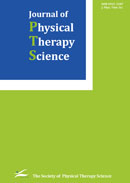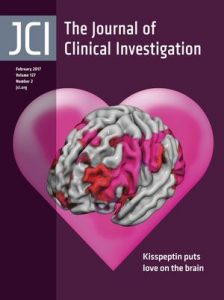A researcher in South Korea has retracted a 2015 paper after telling the journal he falsified the institutional approval required to conduct the animal experiments.
In the article, the author explicitly says that the Animal Experiment Review Board of a university based in Seoul, South Korea approved the experiments, but according to the journal, “the author did not receive an approval by the board and he used a false approval number.”
Here’s the retraction notice for “The role of compensatory movements patterns in spontaneous recovery after stroke,” published in the Journal of Physical Therapy Science (JPTS) in September 2015 and retracted in December: Continue reading Author says he lied about approval for animal research

 Researchers have retracted two 2016 papers from the same journal which were published without the permission of the supervising scientists.
Researchers have retracted two 2016 papers from the same journal which were published without the permission of the supervising scientists. Pfizer has retracted a paper by a former employee who was fired after the company discovered she had been doctoring data.
Pfizer has retracted a paper by a former employee who was fired after the company discovered she had been doctoring data.





